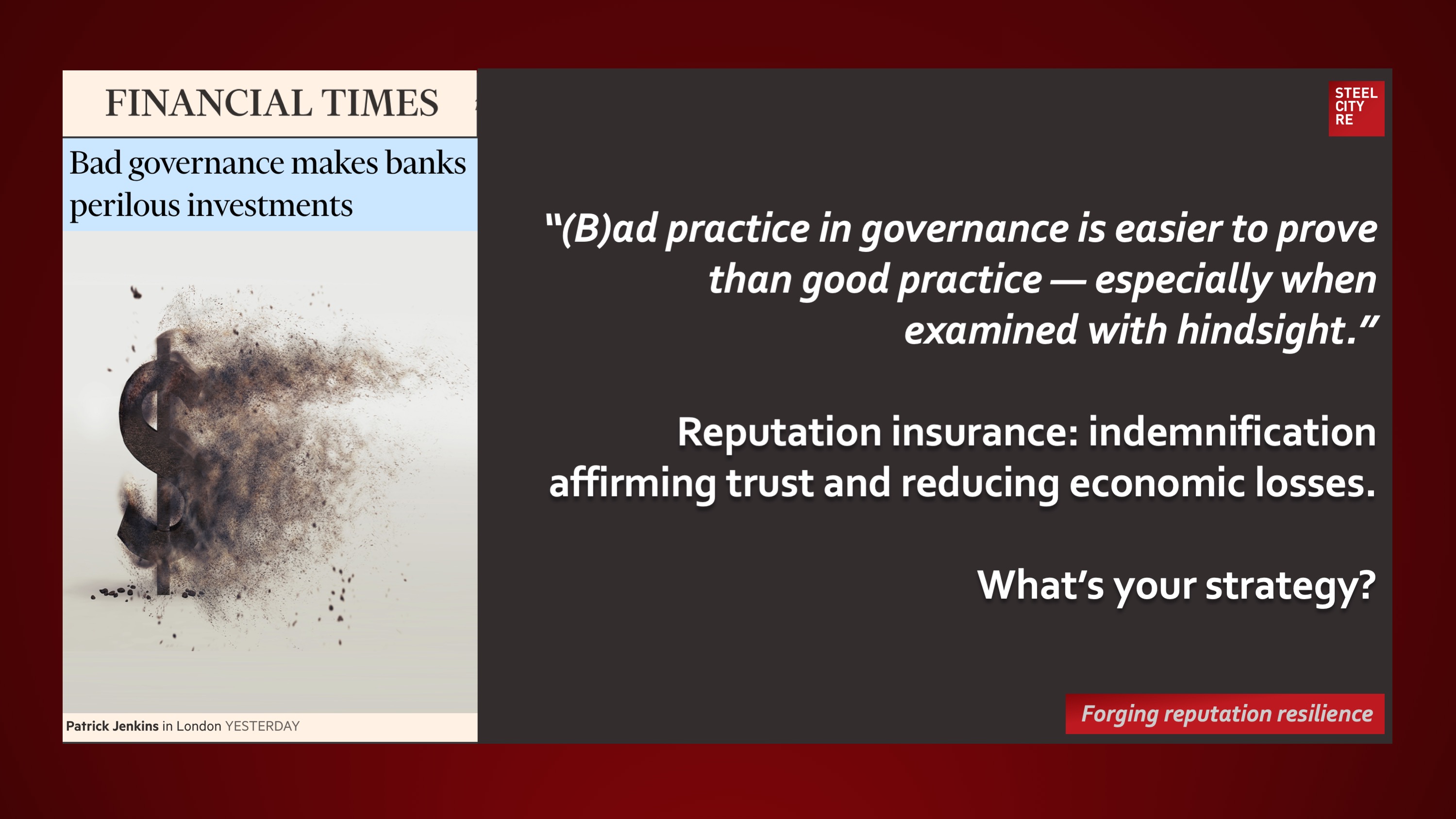“First, good governance really matters…Second, regulators really care about this stuff…(Third) Sensible investors will want banks to be run by driven CEOs kept in check by effective boards to ensure sustainable long-term returns. The unfortunate truth is that sound rules on the subject might guard against disaster. But there is no magic formula for a good honest banker.”
Financial Times
May 14, 2019
“(B)ad practice in governance is easier to prove than good practice — especially when examined with hindsight.”
Reputation insurance signals good governance. It provides indemnification affirming trust and reducing economic losses.
For a broader view of reputation risk, discover additional articles by Steel City Re here, mentions of Steel City Re here, and comments on newsworthy topics by Steel City Re here. To read an abstracted summary of reputation risk, see below
Reputations are valuable strategic intangible assets. Threats to these assets⏤ enterprise reputation risks, often mislabeled “brand risks” ⏤ need to be managed, and management needs to be overseen through reputation risk governance lest reputational damage or reputational harm result in long-tailed go-forward losses in economic value and/or political power. Because these intangible risks arise from the interplay of stakeholder expectation, experiences, and media amplification, parametric insurances for intangible asset risks, for reputational value, for reputational harm, and for reputation assurance help mitigate risk by telling a simple, convincing and completely credible story of quality reputation governance to stakeholders. This story telling effect is the expressive power of insurance complementing insurance’s better known instrumental power of indemnification.
Risk management, risk financing in insurance captives, and risk transfer through reputation insurances comprise the constituent elements of a comprehensive solution.
What’s your strategy?

